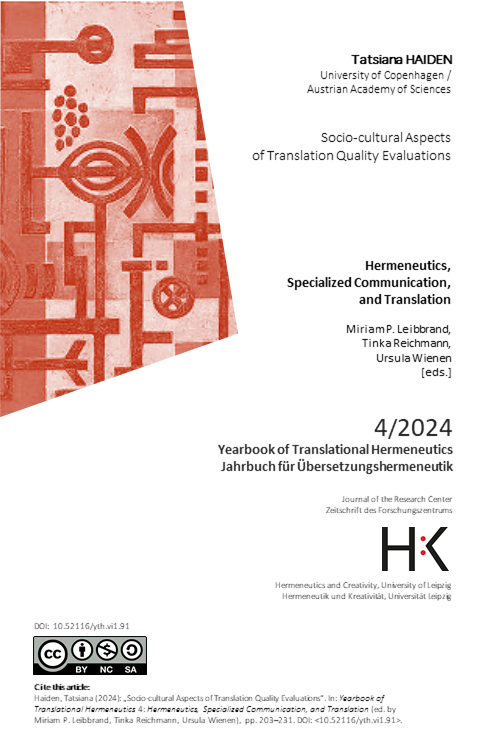Socio-cultural Aspects of Translation Quality Evaluations
DOI:
https://doi.org/10.52116/yth.vi1.91Keywords:
Translation quality, Agency in translation, Networks, Publishing translations, ParatextAbstract
In this article, I examine the concept of translation quality interpreted from the emic, or the insider’s perspective, i.e., by various actors (specifically translators, authors, and the publisher) at the publishing company Paul Zsolnay Verlag in interwar Vienna. Focusing on the communication between the agents of translation, I examine the notion of translation quality in correspondences, how it was used, by whom and under which circumstances, and moreover how it can be interpreted based on the agents´ interests, networks, status at the company and qualifications. Relying on the field theory of Pierre Bourdieu (1986) and the translation culture concept of Erich Prunč (1997), I show in this essay that the concept of quality was used a century ago as a social construct, as a means of manipulation and as a demonstration of power. Furthermore, I apply the method of histoire croisée (Zimmermann 2020, Werner/Zimmermann 2006), which addresses historical intercrossings from different time periods, but also the perspectives of different agents on the same subject or process. Indeed, multiple levels of interpretation have to be considered, I argue, when working with historical translations, professional communication and quality evaluations. Finally, I claim that, when speaking about different interpretations of quality, it is essential to take into account its socio-cultural nature.

Downloads
Published
Issue
Section
License
Copyright (c) 2024 Tatsiana Haiden

This work is licensed under a Creative Commons Attribution-NonCommercial-ShareAlike 4.0 International License.
